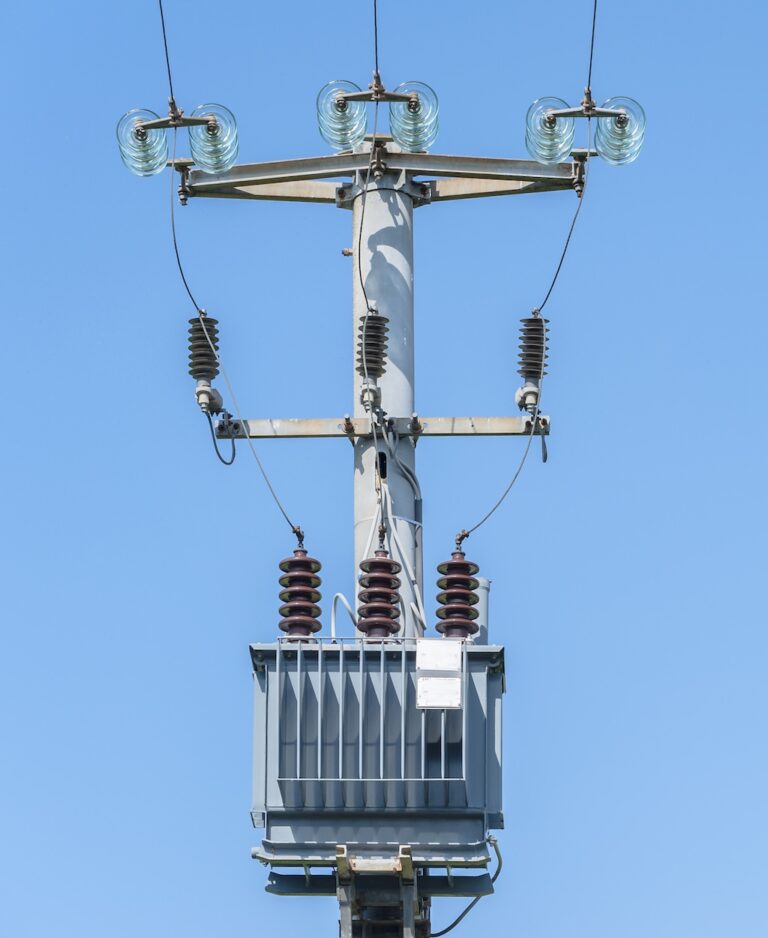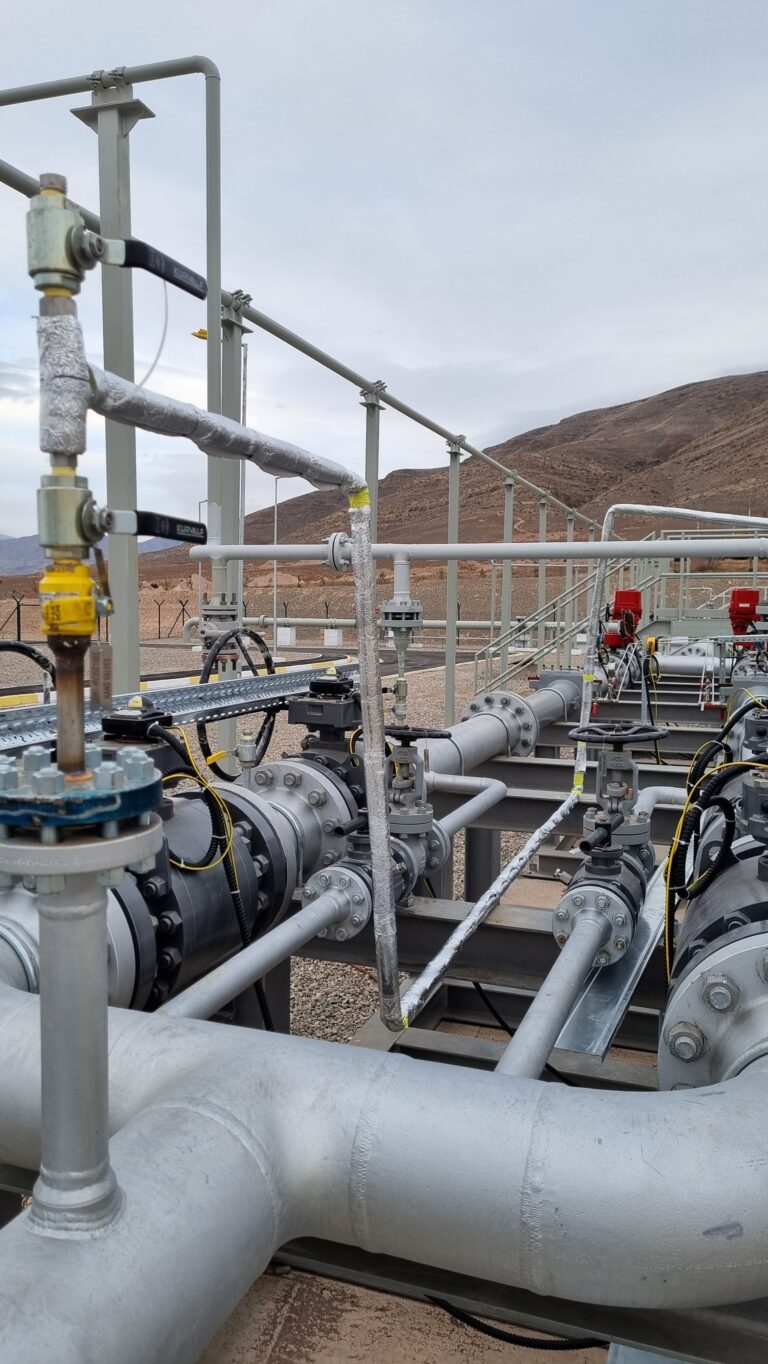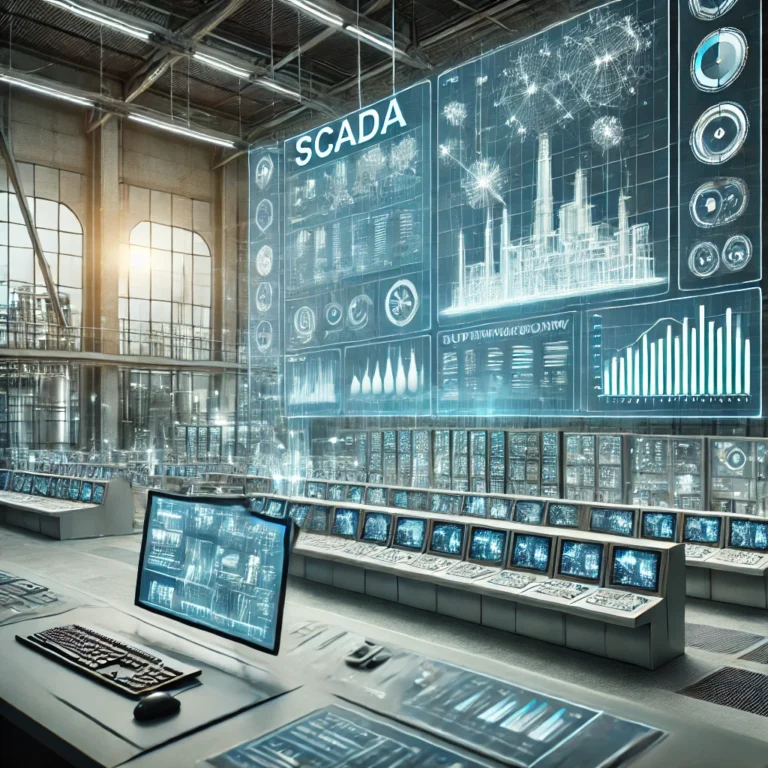What is a Transformer? What Does It Do?
A transformer is an essential device in electrical systems designed to transfer electrical energy between circuits. It efficiently converts voltage...
Devamını Oku

Machine design and manufacturing form the foundation of industrial engineering, transforming creative ideas into functional systems and products. This process involves a combination of technical knowledge, innovation, and precision engineering. Effective design not only ensures operational efficiency but also enhances durability and reduces production costs. Manufacturing, on the other hand, is the physical realization of these designs. Together, they are critical for modern industry.
At Adatech, machine design and manufacturing are approached as integrated processes, starting from concept development through to CAD modeling, engineering simulations, prototyping, and full-scale production. Especially in industries requiring customized solutions, expert machine design is key to achieving competitive advantage. With a focus on quality and innovation, Adatech delivers tailored solutions that add significant value to each project, ensuring every machine meets functional, safety, and performance requirements.
What is machine design? It’s the structured engineering process of creating mechanical systems that perform specific tasks efficiently and reliably. It involves defining the required functionality, calculating technical specifications, selecting suitable materials, and planning manufacturable components. The goal is to develop machines that are not only functional but also cost-effective, safe, and durable. These machines can be used in a wide range of industrial applications — from automation systems to production lines — depending on the intended purpose.
Modern machine design has evolved with technology and is now mostly executed using advanced digital tools. Engineers create 3D models using CAD software, perform structural and dynamic analyses, and evaluate assembly feasibility before a single part is produced. These tools help detect design flaws early, optimize performance, and shorten development time. In essence, machine design is not just about drawing parts; it’s a strategic process of turning engineering knowledge into practical, reliable solutions that meet specific industrial needs.
How to do machine design effectively begins with identifying the functional requirements of the system to be developed. This includes understanding the purpose of the machine, its operational environment, and performance expectations. The process typically starts with conceptual design, followed by calculations for load, stress, and thermal limits. Material selection, mechanical functionality, and safety considerations are all integral at this stage. A well-defined design specification sets the foundation for efficient and accurate development of the machine.
Once the concept is clear, engineers move on to detailed modeling using CAD tools and perform simulations to validate performance. These include finite element analysis (FEA), motion analysis, and thermal simulations, which help optimize the design before any physical prototype is built. The digital model is reviewed and improved iteratively, ensuring maximum efficiency and minimum error. At companies like Adatech, this workflow is streamlined into a seamless engineering-to-production pipeline. Ultimately, how to do machine design is about applying analytical thinking, industry standards, and advanced software tools to create reliable and scalable mechanical systems.
The first step in machine design is clearly identifying the needs and objectives of the project. This involves understanding what the machine is expected to do, under what conditions it will operate, and what performance standards it must meet. By defining these criteria early, engineers ensure that the design aligns with both technical and business goals, setting a clear direction for all subsequent stages.
In the machine design process, engineering analyses and CAD modeling play a crucial role. Engineers use tools like stress analysis, thermal simulation, and motion studies to validate the design’s performance. CAD software allows precise 3D modeling of each component, enabling accurate visualization, virtual testing, and seamless integration. These steps help prevent costly errors before production begins.
Once the digital model is finalized, the next step in machine design is creating a prototype. This physical version allows engineers to test the machine’s real-world functionality, durability, and performance. Through rigorous testing and iteration, any flaws are identified and corrected. Prototyping ensures the final product is reliable, efficient, and ready for mass production.
Machine design and manufacturing processes represent a seamless workflow from idea to implementation. The journey begins with identifying requirements and progresses through concept development, detailed engineering, CAD modeling, prototyping, and finally production. Each stage is carefully planned to ensure that the machine not only meets technical expectations but is also cost-effective and manufacturable. Simulation and analysis tools help validate designs before any physical work begins, reducing the risk of delays and costly errors.
Manufacturing follows the completion of the design phase and includes machining, welding, assembly, and surface treatments. Quality control checks are integrated at every step to ensure that the finished product aligns with the original specifications. Companies like Adatech excel at managing this full lifecycle, delivering high-performance solutions on time and within budget. A smooth connection between machine design and manufacturing leads to faster time-to-market, improved reliability, and better overall project outcomes.
In today’s competitive market, machine design plays a vital role in driving industrial innovation, efficiency, and profitability. Well-designed machines reduce downtime, enhance safety, and optimize production workflows. Industries such as automotive, energy, manufacturing, and aerospace rely heavily on precision machine design to maintain operational excellence. A strong design ensures that machines operate consistently under demanding conditions, reducing maintenance needs and prolonging equipment lifespan.
Companies like Adatech understand that good machine design isn’t just a technical advantage—it’s a strategic asset. With the right design, businesses can scale operations, improve energy efficiency, and reduce long-term costs. Moreover, as sustainability becomes a priority, machine design must now incorporate environmental considerations, such as material selection and energy use. For all these reasons, machine design remains at the core of industrial development and innovation.
Modern machine design relies heavily on advanced software tools to streamline development and ensure precision. CAD (Computer-Aided Design) programs such as SolidWorks, AutoCAD, CATIA, and Siemens NX are widely used for creating detailed 3D models. These tools allow engineers to visualize parts, test fit and function, and ensure manufacturability before production begins. Using these programs also facilitates collaboration and faster revisions, which are essential in complex engineering projects.
In addition to CAD, CAE (Computer-Aided Engineering) software like ANSYS, Abaqus, and COMSOL is used for simulations and stress analysis. These tools test mechanical behavior, thermal properties, and structural performance under various conditions. With such software, companies like Adatech can validate and optimize designs early, saving time and cost in later stages. In short, knowing what software is used in machine design is key to understanding how digital tools drive innovation and accuracy in today’s engineering workflows.

A transformer is an essential device in electrical systems designed to transfer electrical energy between circuits. It efficiently converts voltage...
Devamını Oku
Heat tracing is a heating method used in industrial and commercial areas to prevent pipes, tanks, and other surfaces from...
Devamını Oku
SCADA (Supervisory Control and Data Acquisition) is a comprehensive system designed to monitor, control, and manage industrial processes in real...
Devamını OkuPROTECTION OF PERSONAL DATA
WEBSITE COOKIE POLICY
Your personal data; It is one of the leading principles of our Organization to protect the privacy of visitors to the website (www.adatech.com.tr) operated by ADATECH as the data controller. This Cookie Usage Policy (“Policy”) explains to all our website visitors and users which types of cookies are used and under what conditions.
Cookies are small text files stored on your device or network server by websites you visit on your computer or mobile device.
They are generally used to provide you with a personalized experience during your use of the website you visit, to improve the services offered and to improve your experience, and may contribute to ease of use while browsing a website. If you do not prefer the use of Cookies, you can delete or block Cookies in your browser settings. However, we would like to remind you that this may affect your use of our website. Unless you change your cookie settings in your browser, we will assume that you accept the use of cookies on this website.
1. WHAT KIND OF DATA IS PROCESSED IN COOKIES?
Cookies on websites, depending on their type, collect data about your browsing and usage preferences on the device you visit the site. This data includes information about the pages you access, the services and products you review, your preferred language option and other preferences.
2. WHAT is a solution and what are its intended uses?
Cookies are small text files that are stored on your device or network server through browsers by websites you visit. These small text files, which contain your preferred language and other settings on the site, help us remember your preferences the next time you visit the site and make improvements to our services to improve your experience on the site. Thus, you can have a better and personalized usage experience on your next visit.
The main purposes of using cookies on our Website are listed below:
3.TYPES OF COOKIES USED ON OUR WEBSITE
3.1. Oturum Çerezleri
Session cookies ensure that the website functions properly during your visit. They are used for purposes such as ensuring the security and continuity of our sites and you during your visit. Session cookies are temporary cookies, they are deleted when you close your browser and come to our site again, they are not permanent.
3.2. Persistent Cookies
These types of cookies are used to remember your preferences and are stored on your device via browsers. Persistent cookies remain stored even after you close your browser or restart your computer from which you visited our site. These cookies are kept in subfolders of your browser until they are deleted through your browser’s settings.
Some types of persistent cookies may be used to provide you with special suggestions, taking into account issues such as your purpose of using the Website.
Thanks to persistent cookies, if you visit our Website again with the same device, it is checked whether there is a cookie created by our Website on your device and if there is, it is understood that you have visited the site before and the content to be transmitted to you is determined accordingly and thus a better service is provided to you.
3.3. Mandatory/Technical Cookies
These cookies are essential for the website you visit to function properly. The purpose of such cookies is to provide necessary services by enabling the website to function. For example, it allows you to access secure parts of the website, to use its features, to navigate on it.
3.4. Analytical Cookies
They collect information about the way the website is used, the frequency and number of visits, and show how visitors navigate to the site. The purpose of using such cookies is to increase performance by improving the way the site functions and to determine the general trend direction. They do not contain data that could enable the identification of visitors. For example, they show the number of error messages displayed or the most visited pages.
3.5. Functional/Functional Cookies
It saves the choices made by the visitor within the site and remembers them on the next visit. The purpose of such cookies is to provide ease of use to visitors. For example, it prevents the site user from re-entering the user password on each page they visit.
3.6. Targeting/Advertising Cookies
They enable the measurement of the effectiveness of advertisements served to visitors and the calculation of the number of times the advertisements are viewed. The purpose of such cookies is to serve ads customized to the interests of visitors.
Likewise, they enable the detection of visitors’ interests specific to their browsing and the presentation of appropriate content. For example, it prevents the advertisement shown to the visitor from being shown again in a short time.
4. HOW TO MANAGE COOKIE PREFERENCES?
To change your preferences regarding the use of cookies or to block or delete cookies, simply change your browser settings.
Many browsers give you the option to accept or reject cookies, accept only certain types of cookies, or be alerted by the browser when a website requests to store cookies on your device so that you can control cookies.
It is also possible to delete cookies previously saved in your browser.
If you disable or refuse cookies, you may need to set some preferences manually, some features and services on the website may not function properly as we will not be able to recognize and associate your account. You can change the settings of your browser by clicking on the relevant link from the table below.
5. ENFORCEMENT OF WEBSITE PRIVACY POLICY
Website Privacy Policy …./…./…./…. . is dated. In case all or certain articles of the Policy are renewed, the effective date of the Policy will be updated. The Privacy Policy is published on the website of the Authority (www.adatech.com.tr) and made available to the relevant persons upon the request of the personal data owners.
ADATECH
Address: Esenyalı Neighborhood Yanyol Street Varyap Plaza No:61-148 Pendik / Istanbul
Telephone: +90 (216 ) 514 80 69
E-mail: info@adatech.com.tr
Web Address: www.adatech.com.tr